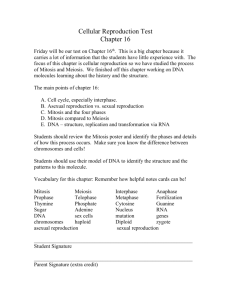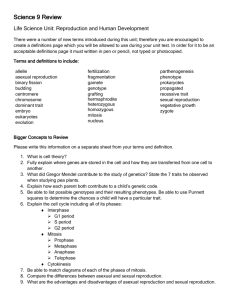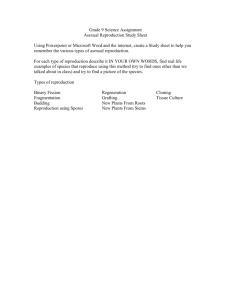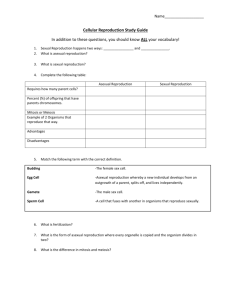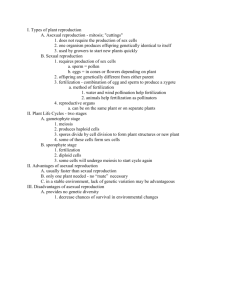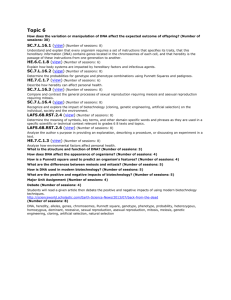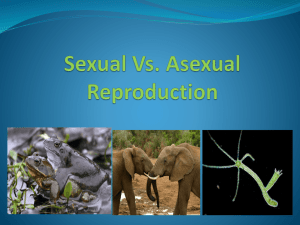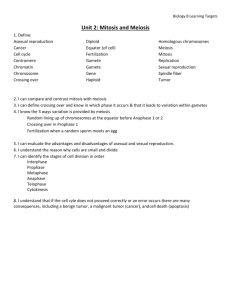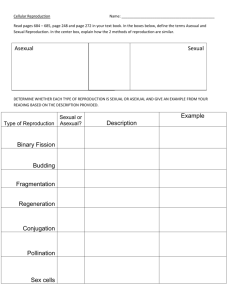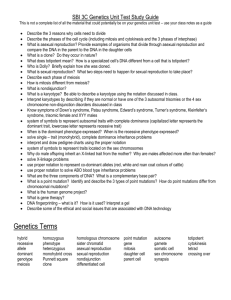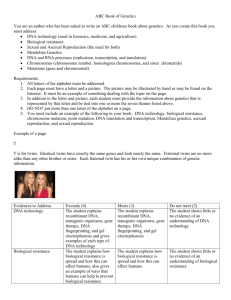Reproductive Unit LO`
advertisement
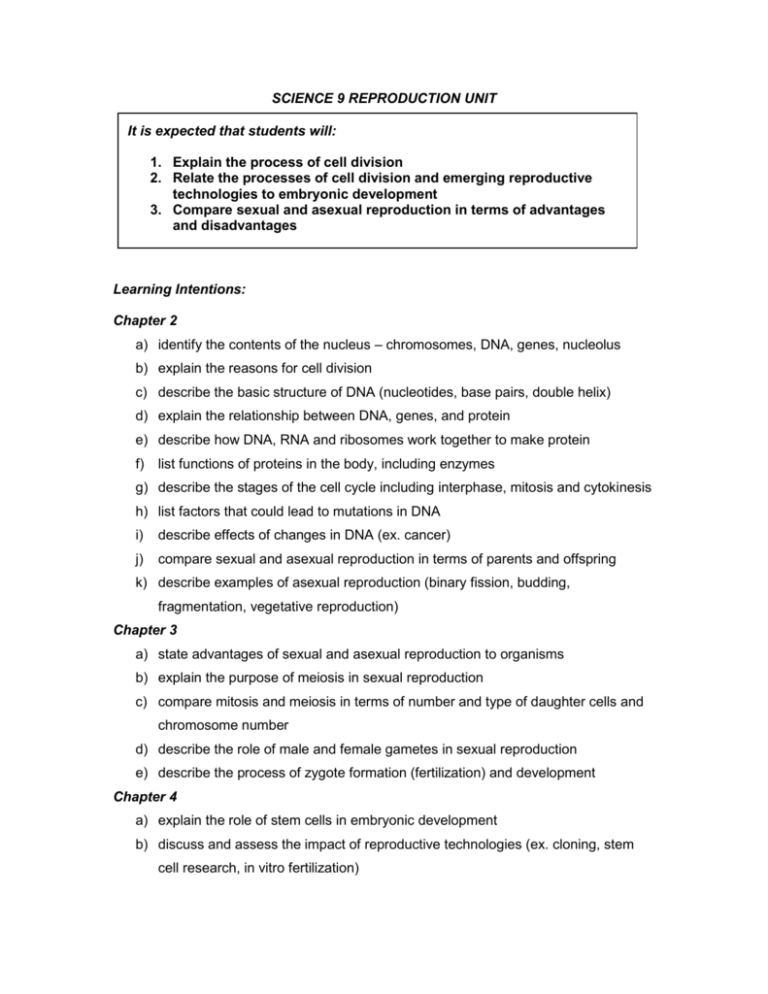
SCIENCE 9 REPRODUCTION UNIT It is expected that students will: 1. Explain the process of cell division 2. Relate the processes of cell division and emerging reproductive technologies to embryonic development 3. Compare sexual and asexual reproduction in terms of advantages and disadvantages Learning Intentions: Chapter 2 a) identify the contents of the nucleus – chromosomes, DNA, genes, nucleolus b) explain the reasons for cell division c) describe the basic structure of DNA (nucleotides, base pairs, double helix) d) explain the relationship between DNA, genes, and protein e) describe how DNA, RNA and ribosomes work together to make protein f) list functions of proteins in the body, including enzymes g) describe the stages of the cell cycle including interphase, mitosis and cytokinesis h) list factors that could lead to mutations in DNA i) describe effects of changes in DNA (ex. cancer) j) compare sexual and asexual reproduction in terms of parents and offspring k) describe examples of asexual reproduction (binary fission, budding, fragmentation, vegetative reproduction) Chapter 3 a) state advantages of sexual and asexual reproduction to organisms b) explain the purpose of meiosis in sexual reproduction c) compare mitosis and meiosis in terms of number and type of daughter cells and chromosome number d) describe the role of male and female gametes in sexual reproduction e) describe the process of zygote formation (fertilization) and development Chapter 4 a) explain the role of stem cells in embryonic development b) discuss and assess the impact of reproductive technologies (ex. cloning, stem cell research, in vitro fertilization) Chapter 2 Vocabulary nucleus vegetative reproduction fragmentation nucleolus DNA Chromosome RNA nucleotide nitrogenous bases amino acid gene genome chromatid centrioles Chapter 3 Vocabulary gamete meiosis sperm egg haploid diploid fertilization zygote embryo cell cycle interphase mitosis spindle prophase metaphase anaphase telophase cytokinesis mutation cancer carcinogen sexual reproduction zygote asexual reproduction clone binary fission budding Chapter 4 Vocabulary stem cell differentiation
